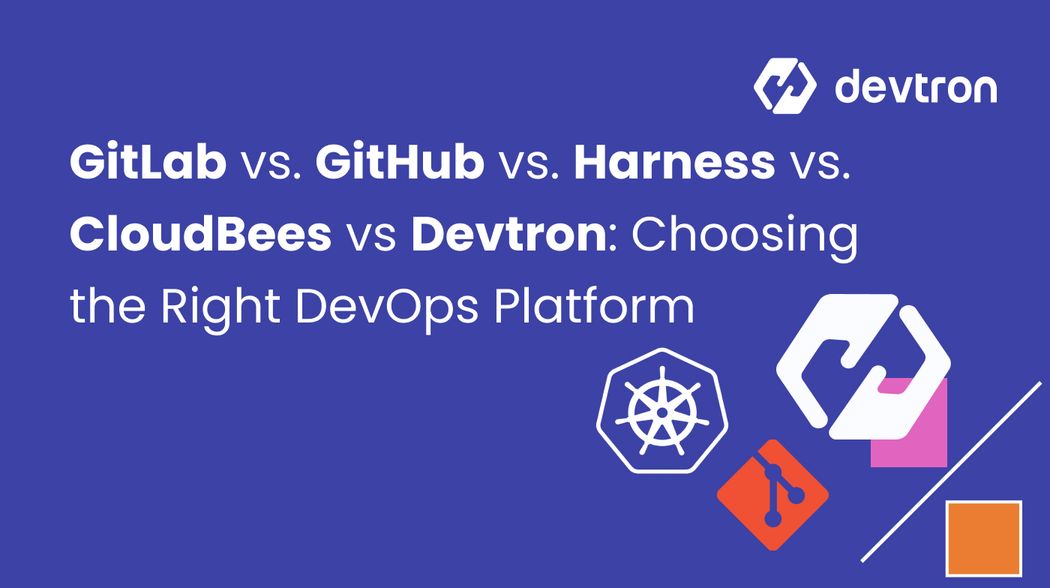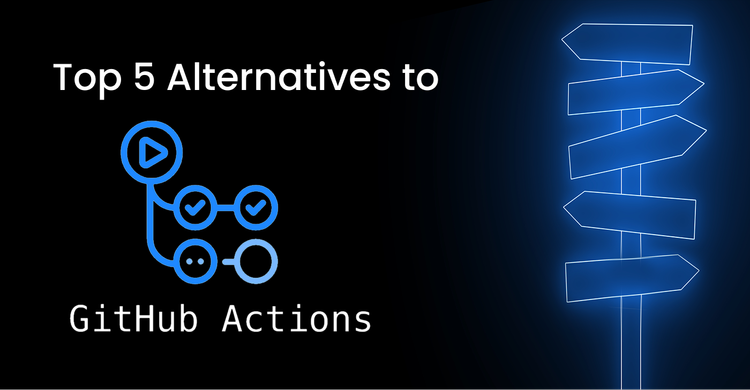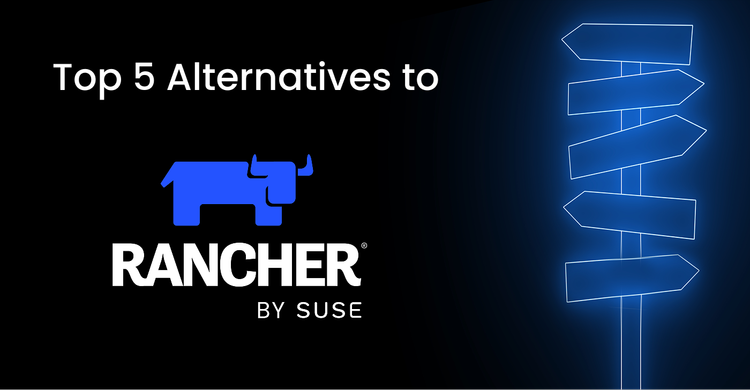Preface: Any detailed feature comparison would be outdated the moment it was published. With that in mind we’ve created a high level guide to orient you to each solution. For detailed feature comparisons you can (maybe) find those on each vendor's website if they are brave enough to publish them.
Introduction - 1 Newcomer and 4 Veterans
In the ever-evolving landscape of DevOps tools, choosing the right platform can be a daunting task. Four prominent names that frequently pop up in discussions are GitLab, GitHub, Harness, and CloudBees. Each of these platforms offers unique features and capabilities tailored to different aspects of the DevOps lifecycle. In this blog post, we'll delve into a comparison of GitLab, GitHub, Harness, and CloudBees, helping you make an informed decision about which one best suits your organization's needs. We’ll also cover one “up and coming” platform, Devtron - which is an open-source platform that makes it easy to migrate and deploy applications to Kubernetes.
Devtron: Making the Migration to K8s Simple, Fast, and Enjoyable
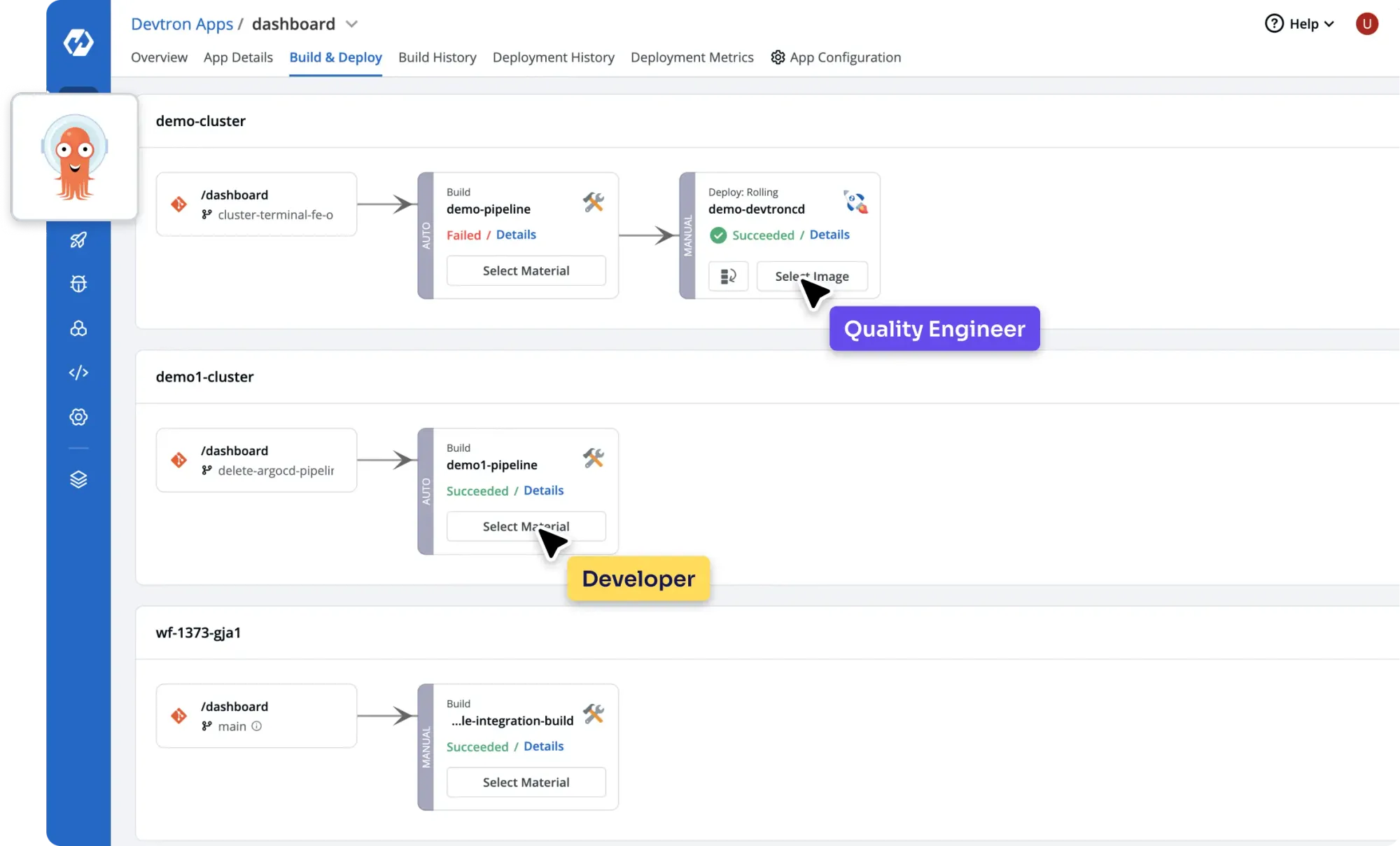
Devtron is one of the newest entrants into the software delivery platform (aka DevOps Platform) space but they have a surprisingly robust feature set for a young company. Devtron is focused on Kubernetes from a technical perspective but heavily invested in promoting the well-being of IT professionals through software and culture. Here are some of the reasons why companies choose to partner with Devtron:
- Unified Software Delivery Platform for Kubernetes Applications: Devtron is a platform that unifies and enhances trusted open-source DevOps solutions into a single, powerful delivery platform. It provides CI, CD, GitOps, DevSecOps, Observability, and more. This allows you to build, test, deploy, and release your software faster than ever before with more automation and less manual effort.
- Automated CI/CD Pipelines: Devtron provides automated Continuous Integration and Continuous Deployment (CI/CD) pipelines, simplifying the process of building, testing, and deploying applications. With Devtron's CI/CD capabilities, you can define and automate the entire software delivery pipeline, from code commits to production deployment. This automation reduces manual intervention, minimizes errors, and accelerates the release cycle, leading to faster time-to-market for your applications.
- Enhanced Security and Compliance: With Devtron, DevOps and SecOps can create policy-driven guardrails to ensure proper testing, security & compliance checks, and release standards. This enables developer self-service and high velocity while maintaining the desired levels of security and compliance.
- Cost Efficiency: Devtron offers features like ephemeral environments, built-in autoscaling (via KEDA), and cloud resource scheduling (via Winter-Soldier) that proactively reign in cloud costs. Plus, Devtron’s K8s Dashboard provides increased visibility and faster troubleshooting of resource utilization and contention issues.
These key features make Devtron a comprehensive platform for managing the entire application delivery lifecycle while also focusing on the health and productivity of the development team. Devtron's automation, deployment strategies, resource optimization, and developer well-being monitoring contribute to more efficient and reliable software delivery processes.
Harness: The Continuous Delivery Specialist ++
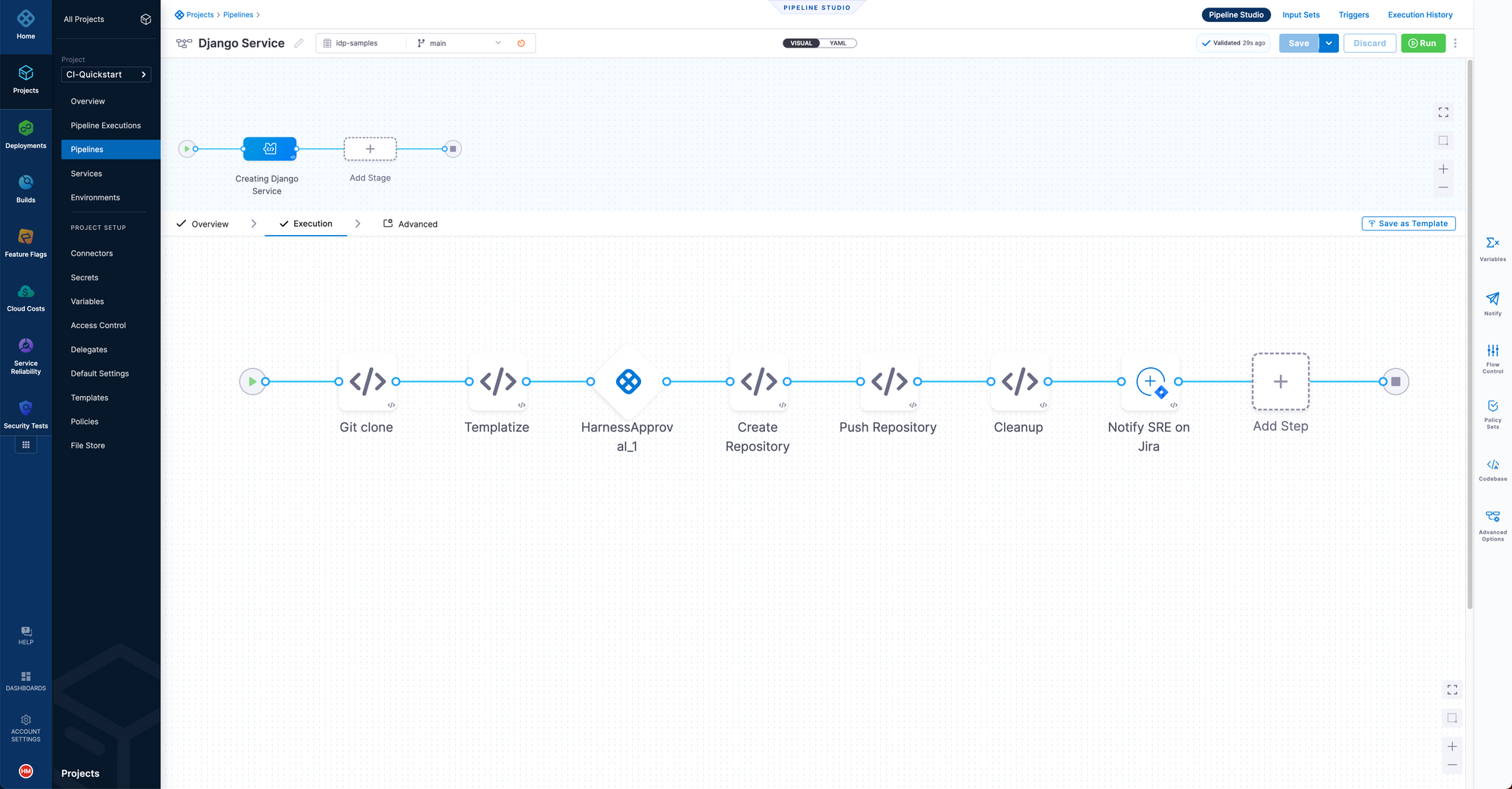
Harness specializes in continuous delivery and offers robust automation and deployment capabilities. Over the past couple of years Harness has expanded their offerings to encompass many different aspects of software delivery but the bulk of their customers still use their CD module. Key features of Harness include:
- Automated CI/CD Process: Harness automates the entire CI/CD process. This allows DevOps engineers to automate code testing, deployment, and rollbacks. It simplifies the software delivery process, reducing manual effort and increasing efficiency.
- Machine Learning-Based Verification: Harness uses machine learning to protect you when deployments fail. It automatically detects performance and quality regression in deployments. This ensures the reliability of your deployments and reduces the risk of failures.
- Enterprise-Grade Security: Harness provides enterprise-grade security. It enables DevOps and SecOps to create policy-driven security guardrails. This ensures that your deployments meet the desired levels of security and compliance.
- Cloud Cost Management: Harness simplifies cloud cost visibility, savings, and forecasting without any tagging requirements. With Harness Cloud Cost Management, you can optimize your cloud costs. This helps you manage your cloud resources more efficiently and cost-effectively.
Harness offers a growing suite of modules including CI/CD, cloud cost management, security testing orchestration, service reliability management, feature management, analytics, chaos engineering, and exception tracking.
GitLab: An All-in-One DevOps Platform
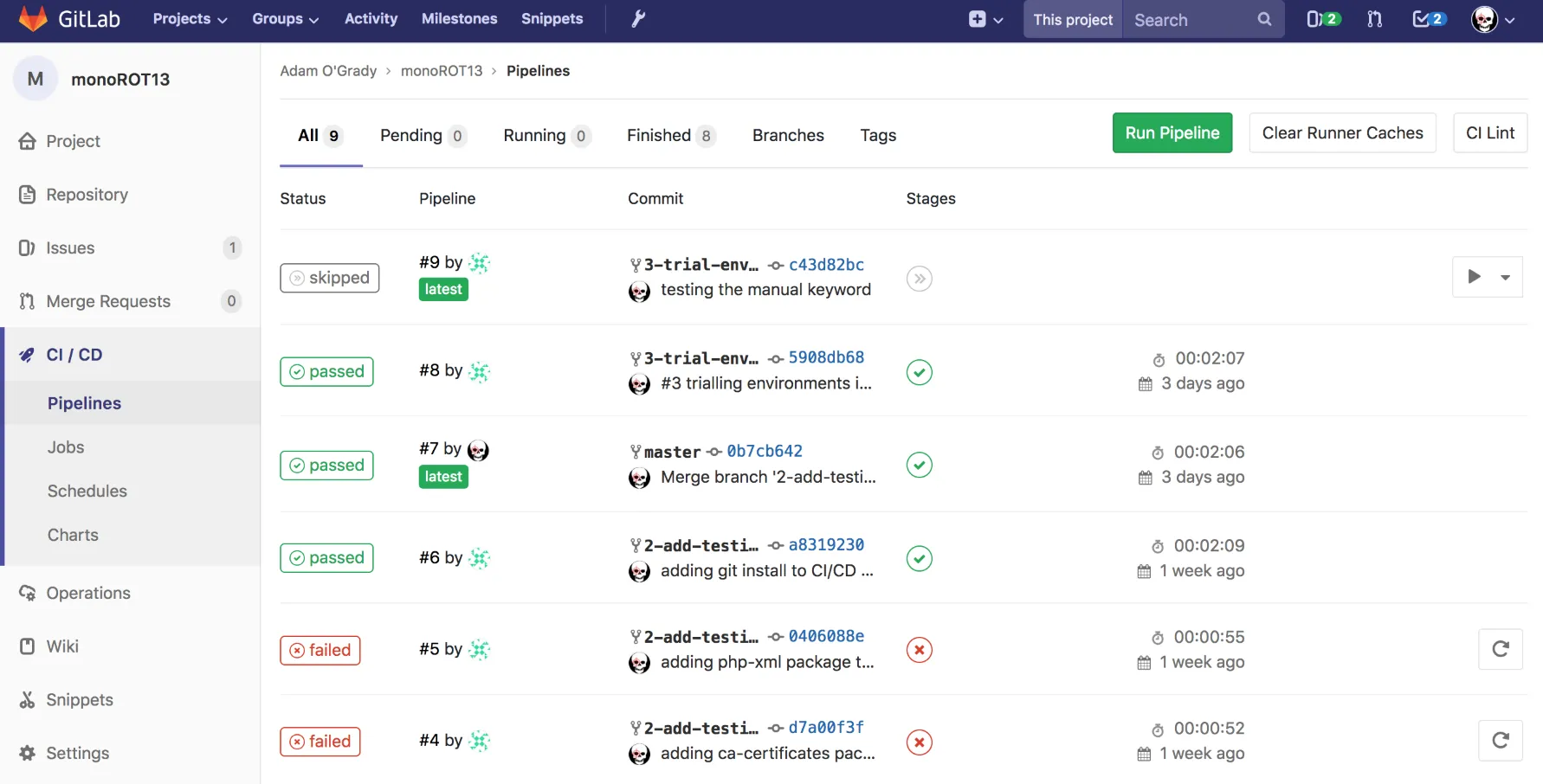
GitLab is known for its all-encompassing approach to DevOps, offering a complete suite of tools to streamline the development and deployment processes. They focus on providing a wide breadth of capabilities but there can be limited depth in some of those offerings. Here are some key features that set GitLab apart:
- Automated CI/CD Process: GitLab automates the entire CI/CD process. This allows teams to automate code testing, deployment, and rollbacks. It simplifies the software delivery process, reducing manual effort and increasing efficiency.
- Machine Learning-Based Verification: GitLab uses machine learning to protect you when deployments fail. It automatically detects performance and quality regression in deployments. This ensures the reliability of your deployments and reduces the risk of failures.
- Built-In Security: GitLab’s security capabilities such as DAST, fuzz testing, container scanning, and API screening are integrated end-to-end. Security checks are built into merge requests (MRs), with problems being reported directly in pipelines and MRs. This ensures that your deployments meet the desired levels of security and reduces the risk of failures.
- Compliance and Policy Management: GitLab offers a comprehensive governance solution allowing for separation of duties between teams. GitLab’s policy editor allows customized approval rules tailored to each organization’s compliance requirements, reducing risk. This ensures that your deployments meet compliance requirements.
GitLab offers a comprehensive platform with capabilities for version control, CI/CD, code collaboration, issue tracking, security scanning, and container registry, enabling end-to-end DevOps processes.
GitHub: Heavily Focused on the Dev in DevOps
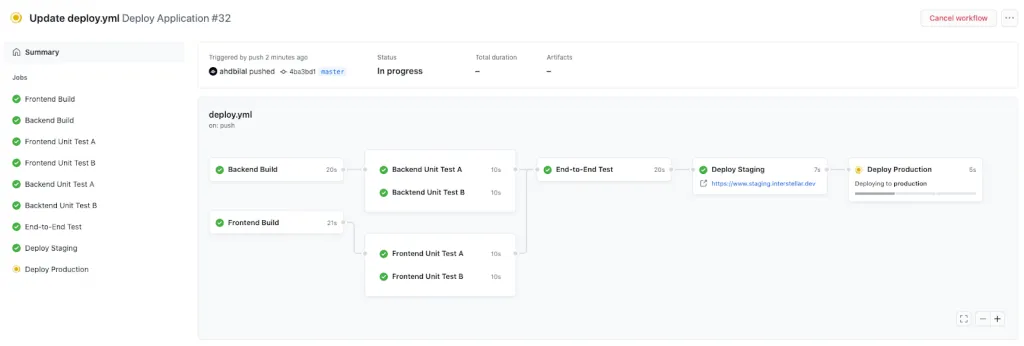
GitHub is a developer-centric platform known for its vast community and integration options. Here's why many developers love GitHub:
- Extensive Integrations: GitHub integrates seamlessly with a wide range of third-party tools and services, allowing you to create a customized DevOps toolchain.
- Code Hosting: GitHub is primarily a code hosting platform with excellent version control capabilities, making it the go-to choice for many open-source projects.
- Actions: GitHub Actions is a powerful tool that can be used to build CI/CD pipelines. It is simple to set up and does not require dedicated resources to maintain. It can respond to any webhook on GitHub, making it highly flexible and integrated.
- Community and Collaboration: GitHub boasts a massive community, making it easy to collaborate with other developers and access a wealth of open-source projects.
GitHub offers capabilities for version control, code collaboration, issue tracking, continuous integration, and continuous delivery to streamline and enhance software development workflows.
CloudBees: Enterprise-Grade Jenkins and More
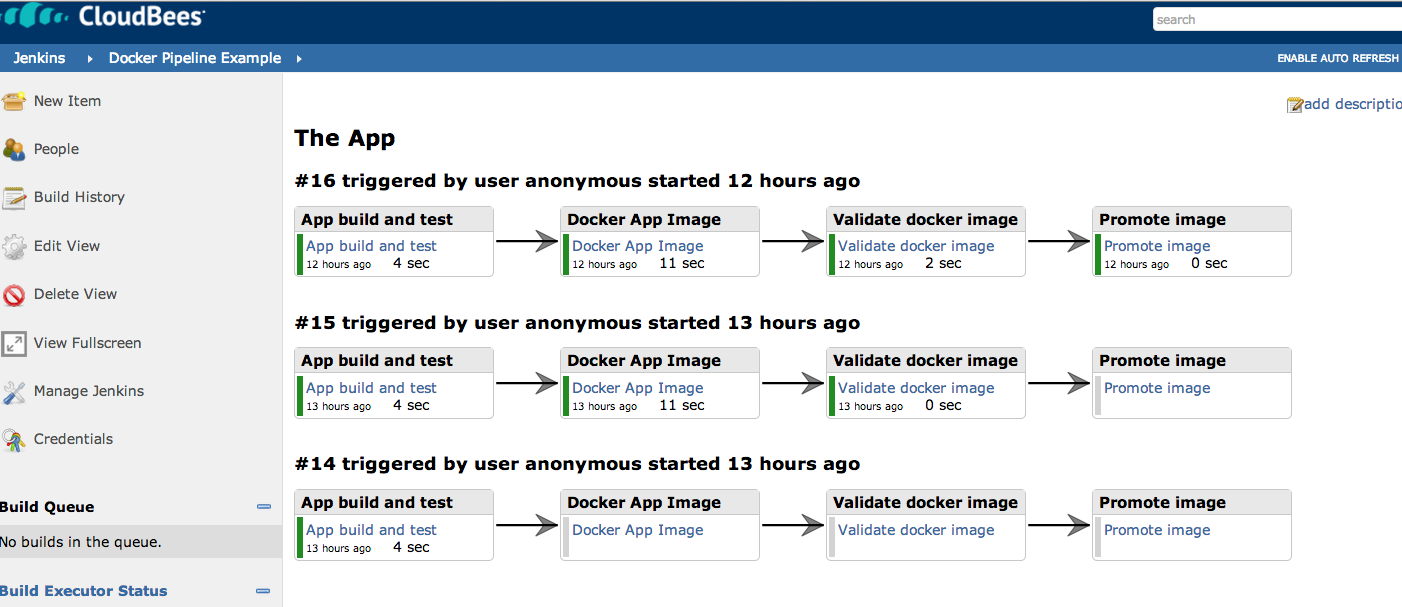
Jenkins has been around in some form since 2004. That’s an eternity in IT years. CloudBees builds on the popular Jenkins automation server, enhancing it for enterprise-scale DevOps. Here's why CloudBees might be the right choice for large organizations interested in using this long-lived technology:
- Jenkins Expertise: CloudBees enhances Jenkins performance and scalability, addressing common enterprise challenges. It offers features like workspace caching, pipeline explorer, build storm prevention, and high availability mode. CloudBees also provides enterprise-grade support and a fully vetted, stable version of Jenkins.
- Security and Compliance: CloudBees offers real-time compliance and risk analysis across the software delivery lifecycle. It provides continuous compliance enforcement, giving enterprises peace of mind. It also integrates with open source and proprietary solutions.
- Scalability: CloudBees CI, an enterprise version of Jenkins, offers significant performance and scalability enhancements. It brings high availability and horizontal scalability to Jenkins, eliminating bottlenecks that occur when scaling CI/CD workloads. This improves Jenkins availability and ability to scale as required.
- Support and Training: CloudBees offers comprehensive support and training through CloudBees University. It provides role-based learning paths, hands-on lab exercises, and certifications. Their customer service managers serve as liaisons with CloudBees Support and Product teams.
CloudBees offers a comprehensive suite of solutions encompassing analytics, compliance, CI/CD, feature management, release orchestration and value stream management.
Conclusion: Choosing the Right DevOps Platform
The choice between Devtron, GitLab, GitHub, Harness, and CloudBees ultimately depends on your organization's specific needs and priorities. Consider factors like the scale of your operations, existing toolchains, team preferences, and budget constraints. Take advantage of free trials and demos to test these platforms in your environment. Remember that there is no one-size-fits-all solution, but with the right evaluation, you can find the perfect DevOps platform to propel your organization towards success.


